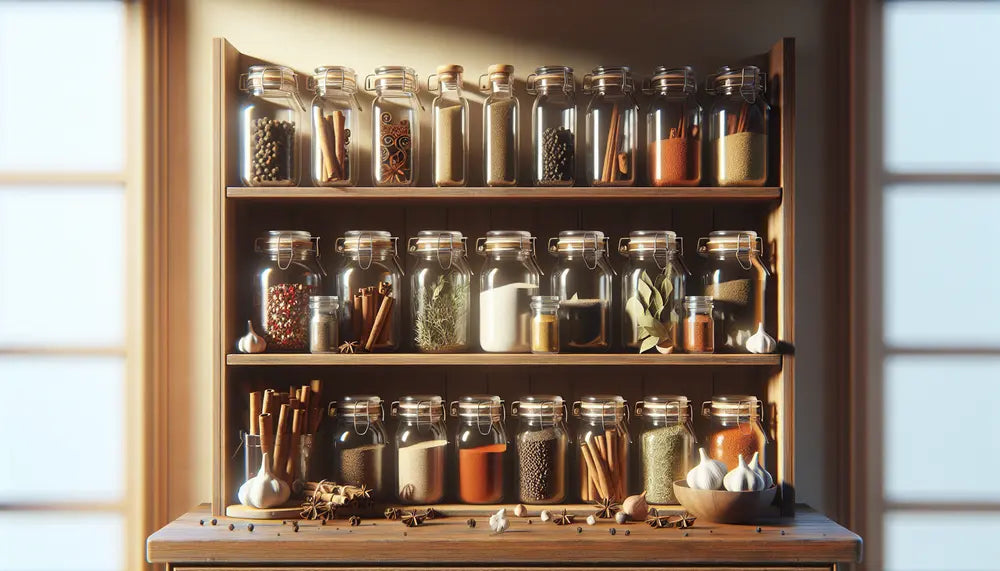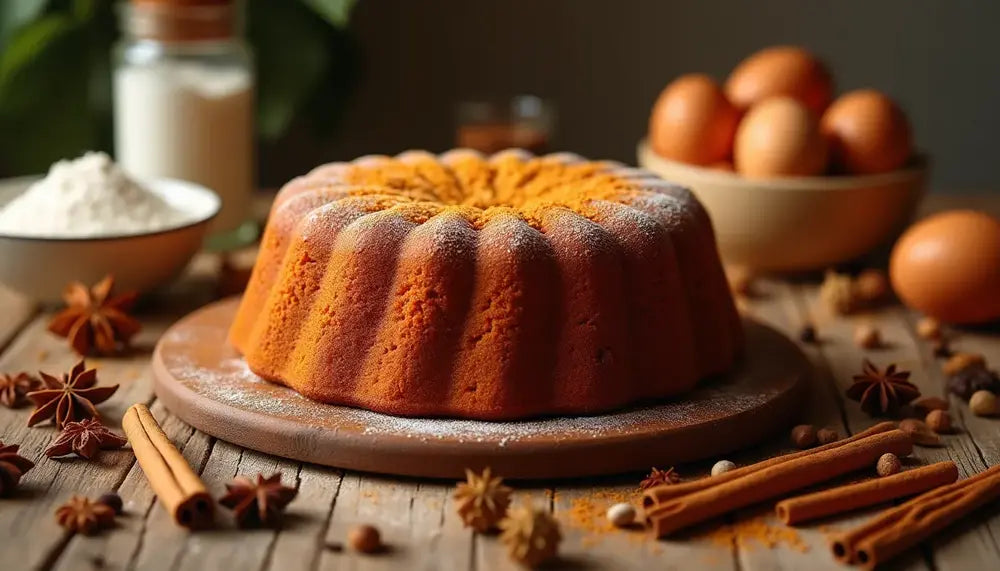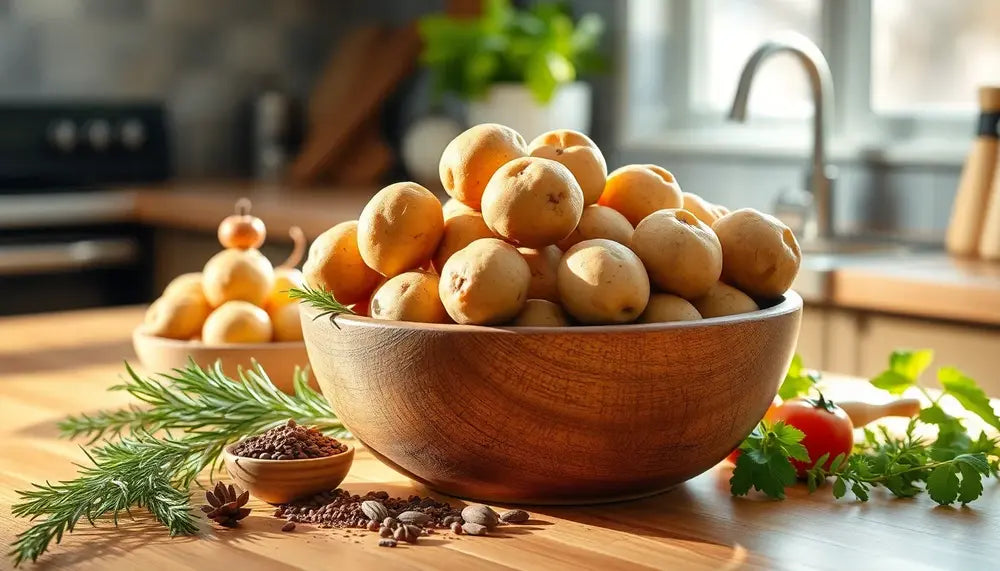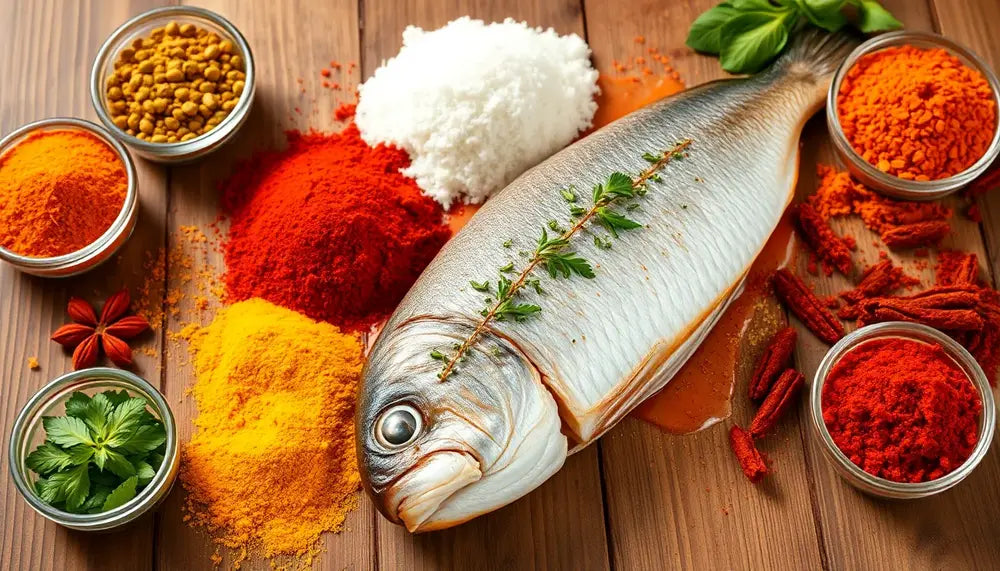Essential spices for every kitchen
The foundation of every cuisine begins with a selection of **essential spices**. These foundations of culinary art make it possible to refine dishes and highlight the taste of simple ingredients. Certain basic spices are indispensable in every kitchen and are versatile and therefore should not be missing in any household.
In addition to the ubiquitous salt, these basic building blocks also include various types of pepper such as black, white and green. These enable precise taste adjustment, depending on the dish and personal preference. But spice mixtures that have been specially developed for everyday cooking should not be missing. You combine several spices into a harmonious unit and save time in kitchen preparation.
A good basic equipment also includes basic spices such as paprika, turmeric and oregano, which are used in many different cuisines. The right amount of these spices can turn a simple dish into a culinary highlight. Not to be forgotten are spices such as nutmeg, cinnamon and cloves, which are used in both sweet and savory dishes and should not be missing, especially in the cold season.
It is advisable to always keep a certain selection of these basic spices fresh and on hand so that you always have the opportunity to add a personal touch to dishes. Not only the type of spice plays a role, but also its quality, which significantly influences the taste.
Salt and pepper: the indispensable classics
The duo applies in every kitchen Salt and pepper as the foundation of good seasoning. These two spices not only add flavor to every dish, but are also crucial for the balance of flavors. They are considered to be the most commonly used spices worldwide and are an integral part of modern culinary culture.
Salt plays a critical role in cooking because of its ability to enhance and deepen flavors. Not only does it enhance the flavor of other ingredients, but it is also essential to the structure and texture of food. The ratio is important when it comes to taste, as too much salt can quickly overwhelm dishes.
Pepper, on the other hand, adds a subtle spiciness and depth that adds complexity to a dish's flavor profile. There are different varieties of pepper, such as black, white, and green pepper, each bringing their own unique notes to the kitchen. This variety allows chefs to experiment with nuances of spiciness and flavor.
The combination of salt and pepper can be considered the essential seasoning formula that forms the basis for countless recipes. It is their universal applicability and ability to bring out the best aspects of any dish that make them essential classics in every kitchen.
Essential spices for every kitchen equipment
| Spice | Application | Per | Cons |
|---|---|---|---|
| pepper | Universally applicable | Improves almost every dish | Can dominate in overdose |
| Black cumin | Used in bread, pastries and oriental dishes | Unique aroma | Not to everyone's taste |
| Salt | Basic seasoning for all dishes | Highlights flavors | Health risks of overconsumption |
| Turmeric | Important in Indian cuisine, for curries and spice mixtures | Anti-inflammatory properties | May discolor fabrics |
| Oregano | Perfect for Italian and Mediterranean cuisine | Flavor intensifies as you cook | Can spoil quickly when fresh |
| Nutmeg | Suitable for sweets and savory dishes | Very aromatic, only needs a small amount | Bitter if too much is used |
Oils and Vinegars: Basics for Flavor and Dressings
Another central component of the Basic spice equipment every kitchen Oils and vinegars. These two ingredients are essential for preparing dressings, marinades and many other dishes where a balanced combination of flavors is important.
Oils not only serve as a base for frying and cooking, but are also essential for creating dressings and dips. Different types of oil like Olive oil, sunflower oil and Pumpkin seed oil Each brings unique flavors and properties that can significantly enrich the taste of salads and warm dishes. Olive oil, for example, is known for its fruity taste, which goes particularly well with Mediterranean dishes, while pumpkin seed oil brings a nutty note to the kitchen, ideal for autumn recipes.
Vinegars, like White wine vinegar, Apple cider vinegar and Balsamic, are also indispensable. They give dishes a pleasant acidity that highlights fresh and light notes. Using vinegar can make the difference between a good dish and an exceptional one by balancing and deepening the flavors.
The combination of oils and vinegars offers an endless variety of flavor options. It is suitable for both simple everyday cooking and complex culinary experiments. Used for the preparation of dressings, Marinades or as a finishing seasoning ingredient, they are truly the cornerstone of every well-stocked kitchen.
Herbs and dried spices: variety for every taste
Play in the world of kitchen spices Herbs and dried spices a crucial role in giving each dish an individual touch. These ingredients are essential to bring variety and depth to the taste of food.
Herbs like Basil, Thyme, Rosemary and Coriander Fresh or dried, they are an enrichment for every kitchen. Fresh herbs offer an incomparable freshness of aroma that is particularly valued in Mediterranean and Asian cuisine. Dried herbs, on the other hand, have the advantage of a longer shelf life and often develop a more intense aroma, making them ideal for braised dishes and soups.
Dried spices like Turmeric, Cumin and Paprika powder are an integral part of many global cuisines. These spices are popular not only for their taste but also for their health benefits. For example, turmeric is often valued for its anti-inflammatory properties and gives curry dishes a distinctive yellow color.
For a well-stocked spice collection, it makes sense to have a mix of fresh and dried herbs as well as a range of basic dried spices. This means you are equipped to prepare a wide variety of dishes from all over the world. The ability to experiment with herbs and spices by using them in different combinations can also encourage creativity in the kitchen and lead to new culinary discoveries.
Exotic spices: a touch of internationality
Enriching the home kitchen with exotic spices opens the door to a world full of fascinating flavors and spectacular dishes. They not only add variety to the menu, but also make it possible to authentically recreate international cuisine at home.
One of the popular exotic spices is: cardamom, which is particularly used in Indian and Arabic cuisine. It is characterized by a sweet, slightly spicy aroma that goes perfectly with rice dishes and desserts. Another exotic spice is the Asafoetida, a staple of vegetarian Indian cuisine known for its strong flavor and often used as a substitute for onions and garlic.
Saffron, one of the most expensive spices in the world, is known for its intense color and unique aroma. It is often used in Mediterranean and Middle Eastern dishes, such as Spanish paella or Persian rice dishes. Saffron not only adds flavor to dishes, but also a beautiful golden color.
Incorporating these exotic spices into daily cooking routines can be a culinary journey that invigorates the palate and broadens the horizons. Whether for special occasions or to spice up everyday dishes, the use of international spices gives every meal an extraordinary touch.
Storage and shelf life of spices
Correct Storage and shelf life of spices are crucial to preserving their aroma and effectiveness over a longer period of time. Spices should be stored carefully to preserve their full flavor potential.
Spices are light and heat sensitive and will quickly lose their aromas if stored incorrectly. The optimal storage place for spices is cool, dry and dark. A kitchen cabinet that is not exposed to direct sunlight or is too close to the heat source is ideal. Transparent containers should be avoided as they do not provide protection from light. Instead are dark glass containers or opaque cans to be preferred.
The shelf life of spices varies depending on the type. While dried herbs and ground spices usually have a shelf life of up to one year, whole spices can stay fresh for up to three years if stored properly. It is recommended to buy spices in small quantities and to replace them regularly to always ensure the best quality and depth of flavor.
To check the freshness of a spice, you can rub it between your fingers and smell it. A vibrant aroma is a sign that the spice is still potent. If the smell is faint, the spice has probably lost much of its flavor.
Storing spices correctly is not just a matter of organization, but also crucial to preserving them Quality and Effectiveness in the kitchen. A conscious use of these precious ingredients ensures that the aroma potential is optimally used in every dish.
Tips for buying spices: recognize quality
At Buying spices Quality is crucial to how good the final product will taste. Here are some tips to help you identify high-quality spices and bring the best flavors into your kitchen.
First of all you should Color of the spice consider. Bright, strong colors are often an indicator of freshness and good quality. Faded colors, on the other hand, can be a sign that the spice has been stored for a long time and may have lost its taste.
Another important feature is the smell. Fresh spices have a strong, characteristic scent. If the spice hardly smells anymore or the smell seems adulterated, it is probably no longer optimally usable.
The texture can also provide information about quality. Spices should be dry and free of lumps. Moisture can indicate improper storage and promote the formation of mold.
It is also recommended to add spices smaller quantities to buy. This ensures they are used up sooner before they lose their flavor. You should also try spices in your whole condition to buy and only grind them when necessary to preserve the freshness and aroma.
When choosing spices, it can also be helpful Certificates and Origin information to pay attention. Organic and ethically sourced spices can have higher quality standards and are often superior in taste.
Investing in high-quality spices means that every dish you prepare is of the best quality. The flavor and aroma that good spices provide can make cooking a truly sensory experience.
Conclusion: Why a good basic spice supply is essential
The conclusion is clear: one good basic spice supplies is essential for every kitchen. It forms the backbone of culinary creativity and makes it possible to create an amazing variety of flavors using simple means.
Spices are the soul of cooking. They not only offer the opportunity to give dishes a personal touch, but also to experience the cultural diversity of world cuisines. Whether you're following traditional recipes or developing your own creations, having the right spices means being able to transform an ordinary dish into an extraordinary one at any time.
Spices also play an important role in the healthy diet. Many of them have antioxidant, anti-inflammatory and antimicrobial properties. They not only contribute to the taste, but can also promote well-being.
A well-thought-out selection of spices also means that you are prepared for every cooking situation. Whether it's about enhancing a quick everyday dish or creating an elaborate feast, the right spices make the difference. It therefore makes sense to invest in a versatile and high-quality range of spices.
Ultimately, the ability to experiment with spices and use them specifically in the kitchen is an art form. It enables every amateur cook to constantly develop their skills and take their dishes to a new level. Investing in a good basic set of spices is an investment in endless culinary possibilities.
Essential spices: basic equipment for every kitchen
Which spices are essential for every kitchen?
The essential spices in every kitchen should include salt, pepper, paprika, turmeric and oregano. These spices offer versatile uses and basic flavor profiles needed in many dishes.
Why are salt and pepper particularly important in the kitchen?
Salt and pepper are the basis for creating and enhancing flavor in almost all dishes. Salt brings out the flavors of the other ingredients, while pepper adds depth and a slight spiciness.
Can any type of oil be considered a basic ingredient for spices?
Yes, various oils such as olive oil, sunflower oil and pumpkin seed oil play an essential role in creating flavor and depth in dishes and also serve as a base for dressings and marinades.
Are dried spices or fresh herbs better for the kitchen?
Both dried spices and fresh herbs have their benefits. Dried spices have a longer shelf life and have an intense taste, ideal for braised dishes and soups. Fresh herbs offer an incomparable freshness of aroma that is particularly valued in Mediterranean and Asian cuisine.
How should you store spices to preserve their quality?
Spices should be stored in a cool, dry and dark place. Dark glass containers or opaque tins are ideal for protecting them from light and moisture, which helps preserve their aroma and potency.





Share:
Prepare delicious goulash - the perfect spices for it!
Special spices for special dishes